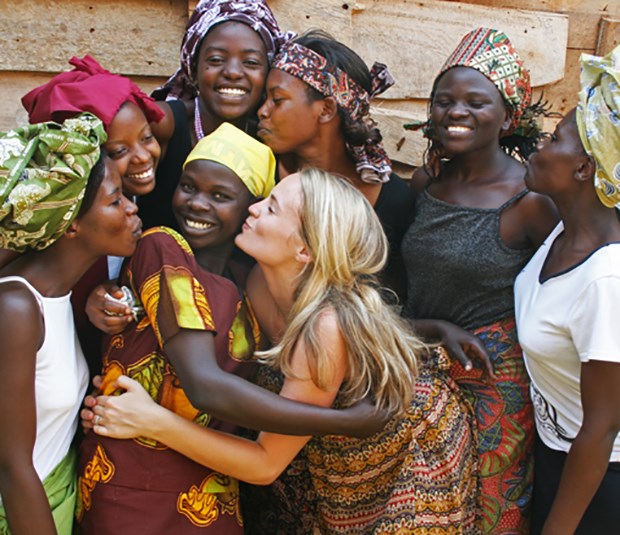It's (Not) All About the Money
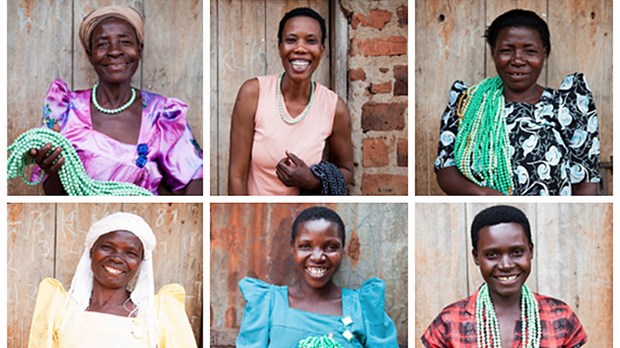
It’s been almost a decade since organizations such as the Red Campaign and businesses such as TOMS Shoes introduced a new kind of entrepreneurship to Americans. Today, the social business movement has expanded to influence just about every kind of sellable product imaginable. It’s also grown to embody much of what drives and defines the Millennial generation.
“When I hear from young people who want to do something meaningful, they talk, most often, about opening a restaurant,” wrote essayist and former Yale professor William Deresiewicz in the New York Times, noting his observations of Millennial entrepreneurs in Portland. “Today’s ideal social form is not the commune or the movement or even the individual creator as such; it’s the small business. Nonprofits are still hip, but students don’t dream about joining one, they dream about starting one. In any case, what’s really hip is social entrepreneurship—companies that try to make money responsibly, then give it all away.”
University heads observed this trend and responded. In 2011, London’s Hult International Business School began offering a master’s degree in social entrepreneurship. A growing number of U.S. universities now offer similar programs.
Christians have also embraced this movement wholeheartedly. Recently, Christianity Today spotlighted a dozen Christian entrepreneurs as part of its "33 Under 33" series, which featured Millennial leaders who are making a difference in a variety of vocations. Today, Christians are at the helm of hundreds of fair-trade businesses, selling items such as coffee, clothing, jewelry, stationary, handbags, scarves, tablecloths, tea, pottery, baskets, soaps, and shoes—and that’s just a sampling.
Here are the stories of three woman, all Christian Millennial entrepreneurs, who are seeking to impact lives through social businesses both within the United States and abroad.
The Akola Project
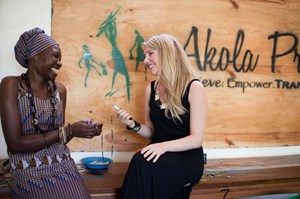
Brittany Merrill Underwood was one of the first Christian pioneers of a social business based in Uganda (today hundreds exist in the country, she says). Now 30, Brittany first visited Uganda as a 19-year-old college student.
She witnessed the lack of employment opportunities for women in rural villages and desired to create a sustainable program where these women could work and provide for children in their own homes instead of relying on orphanages (Brittany initially raised funds to help build an orphanage but realized this didn’t address the long-term challenge of helping women financially.)
In 2007, Brittany developed the Akola Project, which functions as both a nonprofit and a social business. Akola (which means “to work”) employs 250 women in five communities throughout eastern and northern Uganda who produce handmade accessories and handbags, including the company’s popular and colorful beaded necklaces.
Akola’s development model included building two vocational training centers, a fulfillment center, and 23 clean water wells in Ugandan communities. The training centers have also come to function as a church for some families in these communities.
“We work with local leaders and churches to determine the most marginalized women in the area,” says Brittany, explaining how Akola chooses its employees. “All are uneducated and have no prior vocational background except for subsistence farming. We train these women from scratch to make the products we design and sell in the global marketplace, sometimes teaching them basic arithmetic so they can count the beads strung on a necklace.”
Akola employees are guaranteed a monthly income three times higher than typical fair-trade wages, Brittany says. “It’s a living wage, resulting in these women being able to send their children to school, provide for healthcare and food, and even save money toward starting their own local business in their communities.”
This kind of sustainability is the ultimate goal, Brittany explains. “It’s sort of a twist on microfinance, as they’re able to start something new without a third party,” she says. “Last year, 63 women in our program started local businesses. The majority of these jobs are in livestock—pig rearing, goat rearing, or fishing. Some have food stands, and one started a tailoring program. Two of these women started a business, sold it, and sent two of their children to university, a major feat for women with no educational or vocational background in a rural village.”
Akola jewelry currently is sold in more than 350 high-end boutiques throughout the United States and will launch in Dillard's department stores this year. Its business plan has been featured in a McGraw Hill textbook, and Brittany is teaching a course on Akola’s development model at Southern Methodist University (her alma mater) in Dallas this spring, where Brittany resides.
Sseko Designs
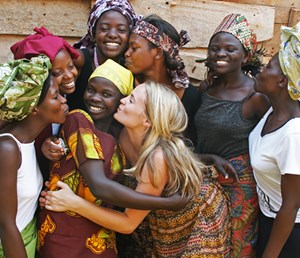
Liz Forkin Bohannon’s journey toward empowering women through her fashion brand, Sseko Designs, also began in Uganda. After graduating from the University of Missouri in 2008, Liz traveled to Uganda with the idea of working for a nonprofit or humanitarian-aid organization. She soon became connected with a youth development organization that serves as a college preparatory school for some of the country’s brightest yet also most impoverished female students.
The irony of the program, Liz discovered, was that while it prepared students for college, most young women were left with no means to pay for university tuition once they graduated. Ugandan students have a nine-month gap intended to provide time between high school graduation and the beginning of college to earn money for tuition. But with the unemployment rate in some parts of the country as high as 80 percent, the prospect of finding work is dim. Less than three percent of women in Uganda attend a university.
“I became determined to do something to bridge this nine-month gap for them,” Liz says.
After experimenting with a few other ideas that didn’t pan out (including a failed chicken farm), a friend reminded Liz of the funky, strappy sandals she made for herself during her college days.
Liz decided to try it out, using locally sourced materials. “I thought, This is something I could feasibly teach a 19-year-old girl to make.” She chose three recent high-school graduates and taught them how to make the ribbony sandal. “I committed to them that if they would make these sandals for the next nine months, I’d help them go to college,” she remembers.
In the meantime, Liz returned to the U.S. and started selling sandals out of the back of her car. “It was exactly what your parents want you doing with the college degree you just received,” she jokes. Her start-up capital existed of several thousand dollars she’d saved in babysitting money since she was 12.
The plan worked, and a new business was born. Over time, Liz set up a workshop in Uganda, forming a team of both permanent workers (some who’ve come out of the sex industry or are AIDS widows) and college-bound women who work for nine months to save funds for university tuition. Liz requires the college-bound workers to set aside at least 50 percent of their income (above a fair wage) in a savings account for school. At the end of their nine-month program, Sseko matches the amount they’ve saved and applies it toward college tuition.
Since selling its first pair of sandals in 2009, Sseko (a Lugandan word for laughter) has employed 47 college-age women who’ve completed the nine-month college savings work program. All have either graduated from college or are currently working to complete their degree.
Additionally, Sseko has evolved into a respected fashion brand that now carries a diverse line of footwear, leather bags, and accessories. While 30 percent of its revenue comes from its website, the company also has a presence in 400 independently-owned shoe stores and boutiques nationwide. Vogue magazine recently gave the company’s Starboard Sandal its stamp of approval in an article on summer fashion.
Liz, who now lives in Portland, says she’s honored to work alongside the kind of women whom she aspires to be like. She’s also found great joy in seeing her employees realize their worth. “These women go from a place in life where no one may have ever told them they’re good or capable of being given a purpose. It’s powerful to see the transformation that happens when someone is told, ‘Hey, we really believe in you. We trust you, and we’re going to give you this responsibility.’”
Wildly Co.
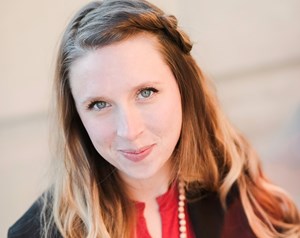
As a newly launched, ethically-made kid’s clothing brand, Wildly Co. is setting out to change the way parents think about children’s clothing while also reviving manufacturing within the United States.
The idea came to Hayley Morgan, co-owner of Wildly along with her husband, Mike, when she traveled to Ethiopia in 2013 as a blogger for a popular website she manages called The Influence Network. During her trip she met Ethiopian women making woven goods for a company called FashionABLE. “I saw how important work was to people’s dignity and how a person’s life is changed when they have a good, safe job,” Hayley says. “I also noticed how labor intensive it was to make these kind of goods.”
Hayley’s husband desired to leave his corporate job, so the couple began dreaming of building a company together. “We have four growing boys, so we’re always buying them new clothes,” Hayley says. “When I began to research and realized the amount of work that goes into creating garments, it felt unbelievable to me that I could purchase a T-shirt for $5 and have anyone actually earn a fair wage for that.”
Her visit to a North Carolina garment factory debunked her previous ideas about how clothing is made. “I thought T-shirts were made in giant factories with machines doing all the work,” she recalls. “I was shocked to find that whoever is making T-shirts, jeans, or sweatpants is sewing them exactly how your mom or grandma would sew them on her sewing machine in the living room.” That became a catalyzing moment for Hayley and her husband. “We realized clothes are worth more than what our culture has been conditioned to pay,” she says. “We’ve grown accustomed to an industry that’s saving us money at someone else’s expense, whether it be a worker’s safety or health.”
The Morgans, who live in Indianapolis, decided to launch an online kids clothing brand that emphasizes simple, interchangeable basic designs for boys and girls sizes two through eight. They connected with a woman who owns a sewing shop in Morganton, North Carolina, once a bustling manufacturing town but now a smaller community with less jobs. The sewing shop employs 25 workers who are given the option, through the amount of hours they choose to work, if they’d like to become co-owners of the shop with equal voting rights. All the fabric used is made in the United States.
To help sustain their business, the price of Wildly Co. clothes aligns with those offered in stores such as Gap Kids, Hayley says. While the merchandise is more expensive than Target or Walmart, the Morgans are banking on a marketing approach that will communicate to customers that their kids don’t need as much as families have been persuaded to believe they do. “It makes for a simpler, easier life,” Hayley says. “And less laundry.”
Hayley says she identifies with other Millennials who want their work to mean something. “Working for money alone isn’t enough,” she says of her generation. “We want our work to have intrinsic value.”
She also believes today’s shoppers desire to know the story behind the products they’re purchasing. “That’s why a relationship with our workers and their factory is so important,” she says. “We want to be able to say, ‘We’ve been there, we took our kids there, and this is something we believe in.’ I think people resonate with that.”
Ethics, Honor, and Dignity
As Christians, we champion women like Liz, Brittany, and Hayley who saw a need and responded with savviness, innovation, and gusto. In a marketplace where “cheap” rules the day, these women work according to a different set of values. Beyond just providing monetary benefits for their workers, entrepreneurial efforts like Sseko designs, the Akola Project, and Wildly Co. honor their employees’ God-given human dignity through providing both sustainable work and quality products. With all of our first-world problems and hectic schedules, may we never overlook the importance of honest work like sandal-making; indeed, beautiful are the feet of those who bring the Good News.
Corrie Cutrer is a writer who lives in Tennessee with her family. She’s also a former assistant editor of Today’s Christian Woman and recipient of several EPA writing awards. She is currently a regular contributor for Today’s Christian Woman.
Read more articles that highlight writing by Christian women at ChristianityToday.com/Women
 Read These Next
Read These Next
 Stop the Money MadnessThrough the years, you'll clash over cash—whether you have a lot or a little.
Stop the Money MadnessThrough the years, you'll clash over cash—whether you have a lot or a little. How to Quit Your Job. . . with grace and integrity
How to Quit Your Job. . . with grace and integrity
 What Divorce Taught Me About True LoveSince my marriage ended, God has gently shown me what marriage really means.
What Divorce Taught Me About True LoveSince my marriage ended, God has gently shown me what marriage really means.








 Homepage
Homepage
